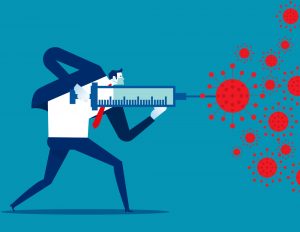COVID-19 showed biopharma at its best and worst says a former regulator, who argues that the scrutiny which came with the pandemic highlighted some key industry challenges.
The pandemic put biopharma in the spotlight according to Jeff Baker, former deputy director of the Office of Biotechnology Products in CDER, who told delegates at the BPI East hybrid conference last month the crisis highlighted industry’s strengths and weaknesses.
“There will be a lot of books written about the COVID-19 crisis and response and a lot of them will be very critical. And I hope they are, because that’s how we learn, and we get better ready next time.

Image: Stock Photo Secrets
“But I hope there are a few written about the almost organic uprising of the biotech community to address this global challenge. And I have never seen more transparency, more cooperation, more collegial participation, and common cause than I saw among the scientists and engineers and project managers of the biotech community in rising to this global challenge.”
Baker added industry’s ability to develop several COVID-19 vaccines in a year was a major validation of the sector. “We science-ed the crap out of it. And I hope that you’ll be able to tell your kids about that with pride,” he said.
Stresses
Public demand for COVID-19 vaccines and therapies was quickly followed by questions about how medicines are made according to Baker, with the sudden focus on industry’s approach to chemistry, manufacturing and controls being one example.
“Not only was CMC in the critical path, CMC was on the front page of The Washington Post. CMC was on Fox News, and we never want to be there….This put a lot of tensions into what was going on. The science didn’t change. The engineering didn’t change. The scrutiny changed. And that put a lot of stress into our system.”
The pandemic also highlighted the need for better supply chain management according to Baker, who said industry needs staff able to come with disruption.
“We need to grow managers that manage because hunting, praying, scavenging and waiting did not put us did not position us for success in managing profoundly disrupted supply chains. “
